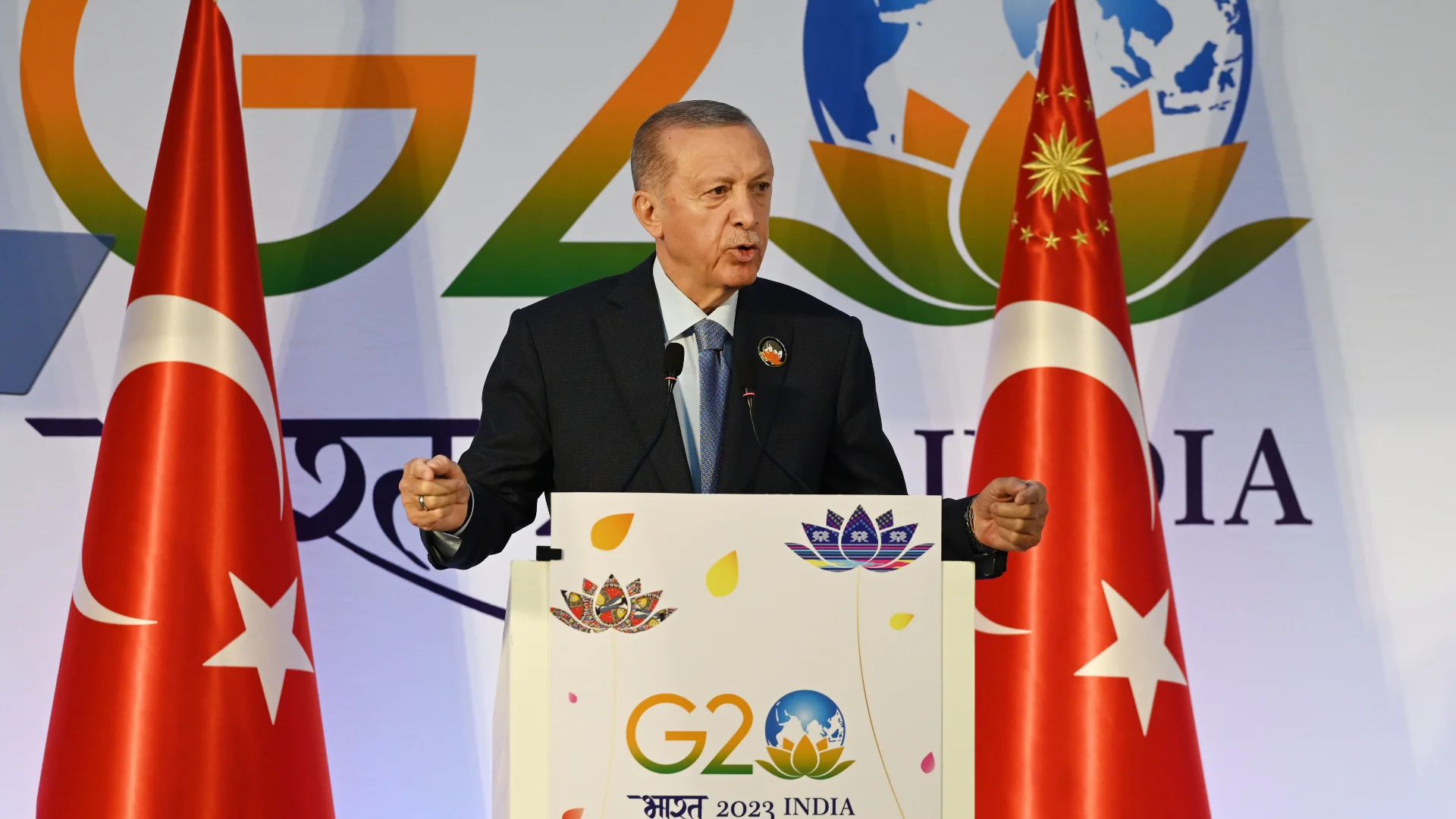
Turkey starts moving against India-Middle East Trade Corridor
Turkey is seeking an alternative to the India-Middle East Trade route having undergone “intensive negotiations” with regional partners with the hopes of re-establishing the country as a key global trade hub.
Despite the India-Middle East corridor’s global reach, Turkish President, Tayyip Erdoğan, warned that “there can be no corridor without Turkey” adding that “the most appropriate route for trade from East to West must pass through Turkey”.
In an attempt to reaffirm Turkey’s century-lasting status, stretching back to the silk road as the original gateway connecting the East to the West, Ankara has pushed for an alternative route called the Iraq Development Road initiative.
This comes as Foreign Minister, Hakan Fidan, stressed that talks have progressed with Iraq, Qatar, and the UAE about a trade initiative that would come to light “within the next few months”, it is reported.
According to plans released by Iraq’s government, the route, valued up to $17 billion, would move goods from the Grand Faw Port in southern Iraq through 10 Iraqi provinces before entering Turkey and would rely on 1200 kilometres of rail and a parallel road network, as per the report.
The route’s development will be carried out across three phases that is projected to culminate by 2050.
Financial and security concerns have, however, surfaced among analysts putting at question the degree of feasibility of Turkey’s alternative initiative.
Europe Director at the Eurasia Group think-tank, Emre Peker, said: “Turkey lacks the financing to realise the full scope of the project, and seems to be counting on UAE and Qatari support to build the proposed infrastructure.
“For that to happen, the Gulf states would need to be convinced of good returns on investment, something that is not imminently evident with the Development Road project.”
Peker further pointed to “issues around security and stability that threaten both construction and the long-term feasibility of the project”.
Despite the alternative proposal, Turkey could yet push to join the India-Middle East initiative through leveraging the nation’s geographical trade advantage, claimed Murat Yeşiltaş, Director of Foreign Policy Studies at think-tank, Seta.
Yeşiltaş explained how, following its strengthening of relations with Saudi Arabia and the UAE, Turkey could also pitch its influence in the region as a means of joining the India-Middle East route, sealed at the G20 summit.
“Turkey wields considerable political influence in the region [and is] capable of facilitating trade negotiations and resolving disputes among the countries participating in the corridor,” Yeşiltaş added.
Despite Turkey’s efforts to play both sides in the West and East, conflicted alliances have recently triggered tensions with the US, resulting in hindrances to Turkey’s shipping operations. Multiple Turkish shipping companies, for instance, have been hit with US sanctions this past month for allegedly aiding Russia’s war against Ukraine, the Financial Times reported.
Moreover, doubts that the motives behind the Biden-approved corridor extend beyond mere operational convenience and ease have arisen among Turkey’s statesmen, with concerns of greater “geostrategic concerns” at play.
The US and EU backed India-Middle East corridor would move goods from the subcontinent through the United Arab Emirates (UAE), Saudi Arabia, Jordan, and Israel, and into European markets, bypassing Turkey in the process.
“Experts had doubts that the primary goal [of the India-Middle East corridor] was rationality and efficiency… A trade route does not only mean meeting trade alone. It’s also a reflection of geostrategic competition,” Fidan stated to the Financial Times.
The G20 route has also been perceived as a response to China’s Belt and Road Initiative (BRI).
The BRI outlines bold plans for the development of new infrastructure, including ports, roads, high-speed rail networks, power generation facilities, pipelines, airports, and telecommunications connections. These projects are designed to enhance trade and connectivity between China and a vast network of 60 countries spanning Asia, Europe, the Middle East, and North Africa.
However, critics have perceived the BRI, which has received Turkish support, albeit limited, as a tool for China’s foreign policy and the country’s attempt to expand its political footprint worldwide.

